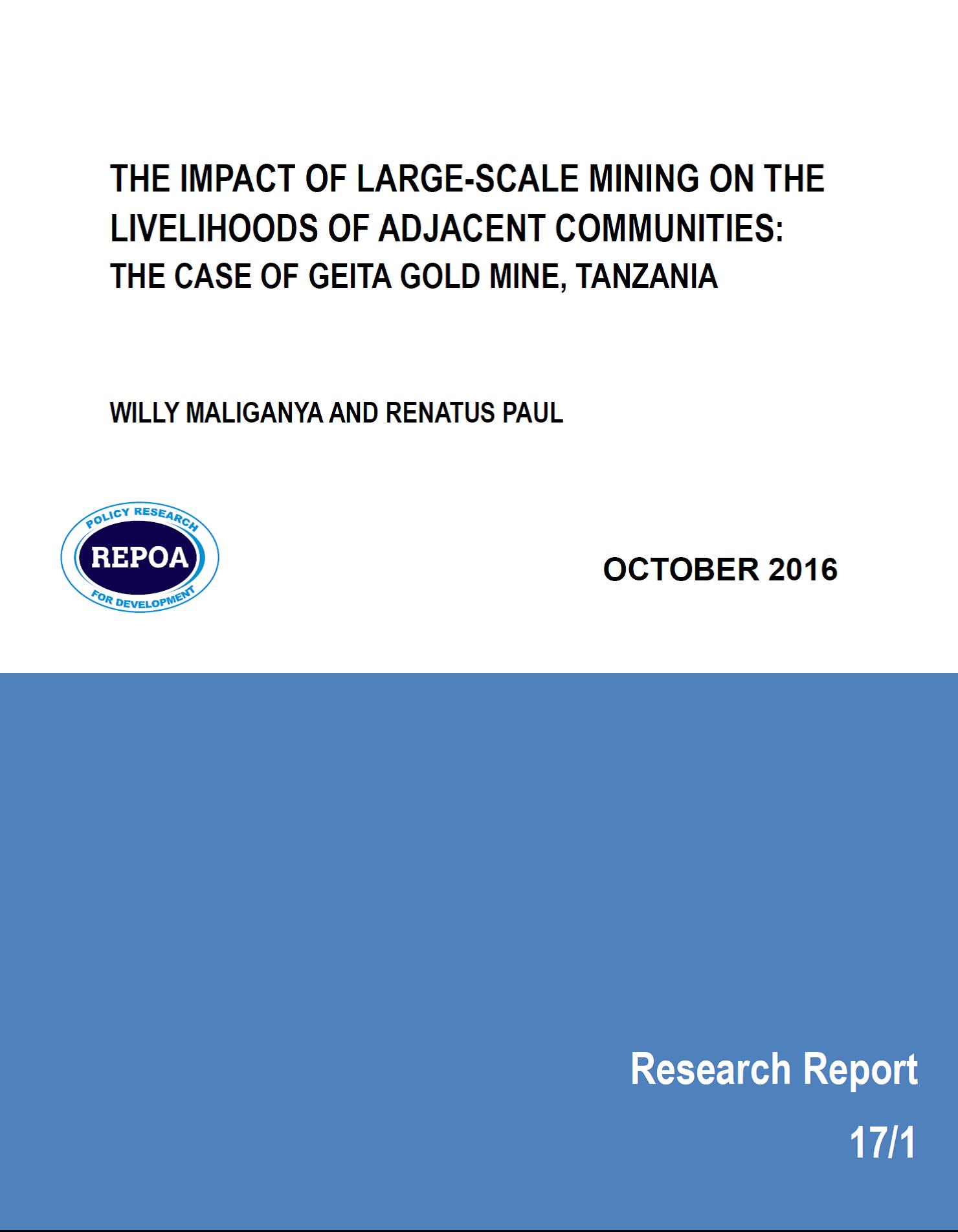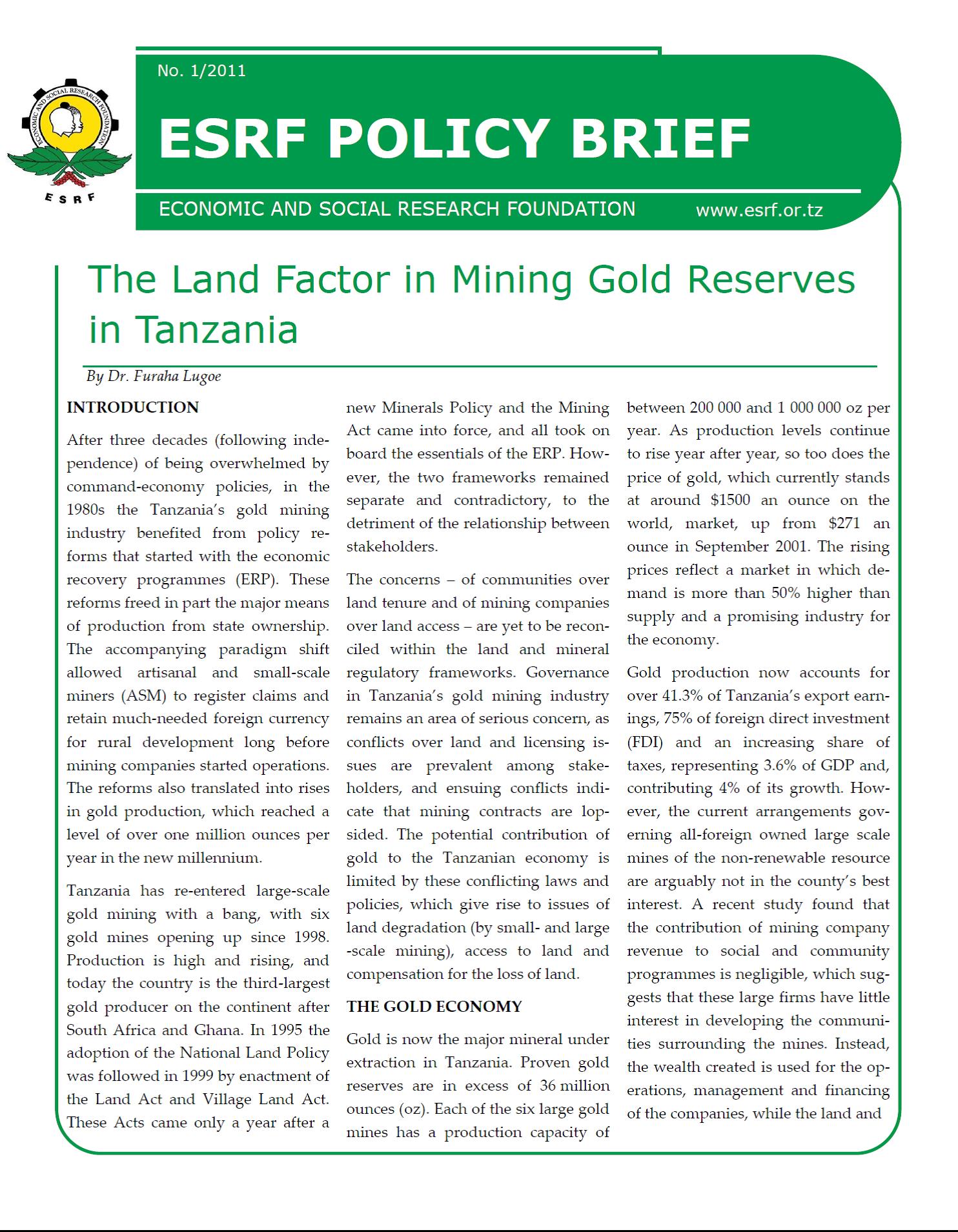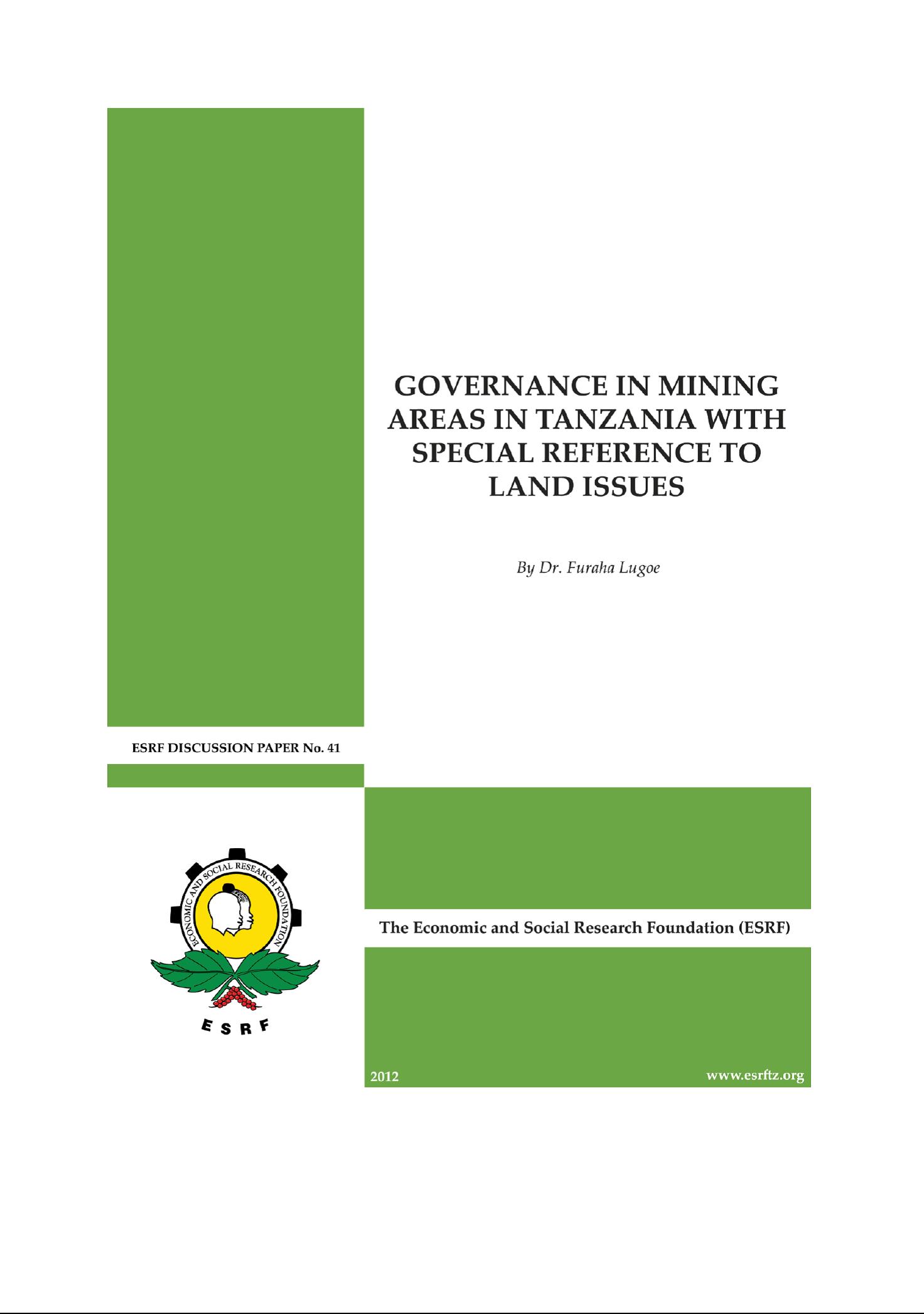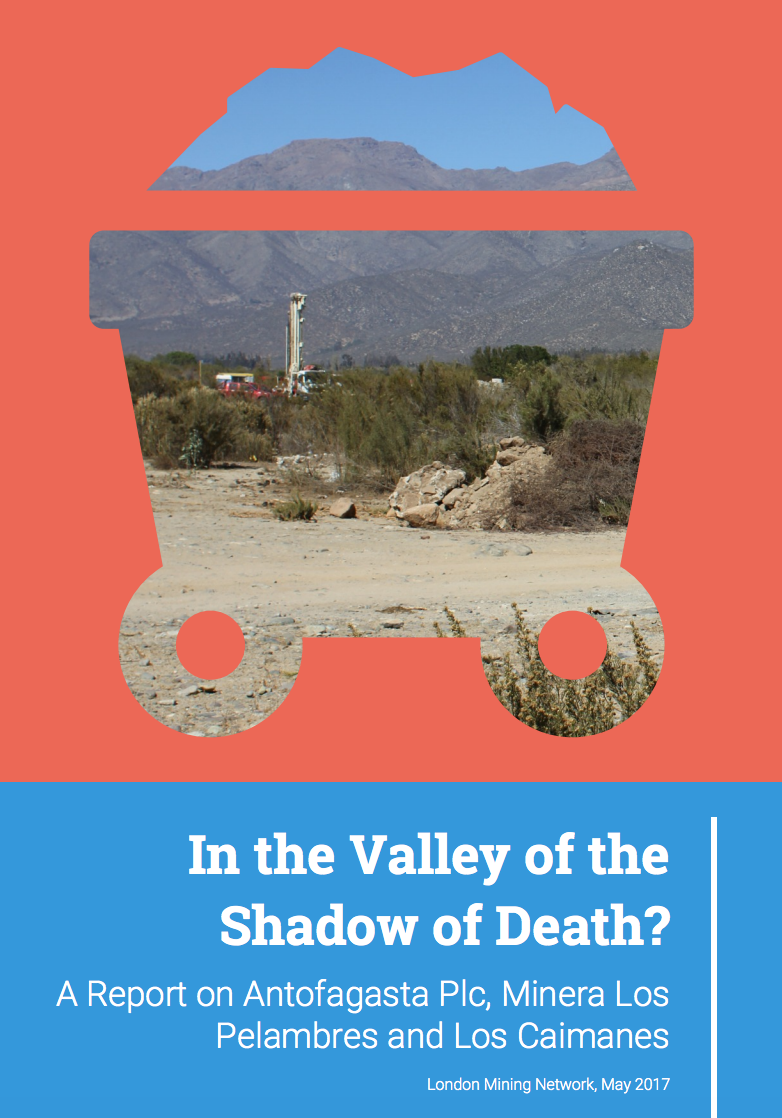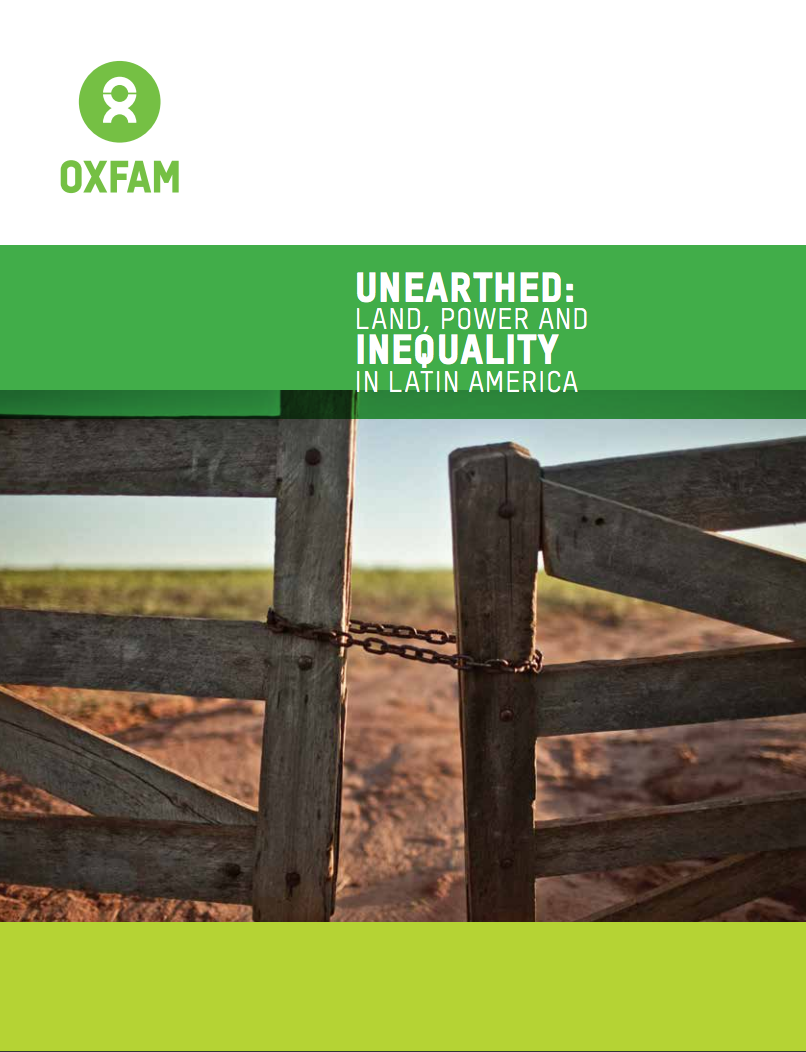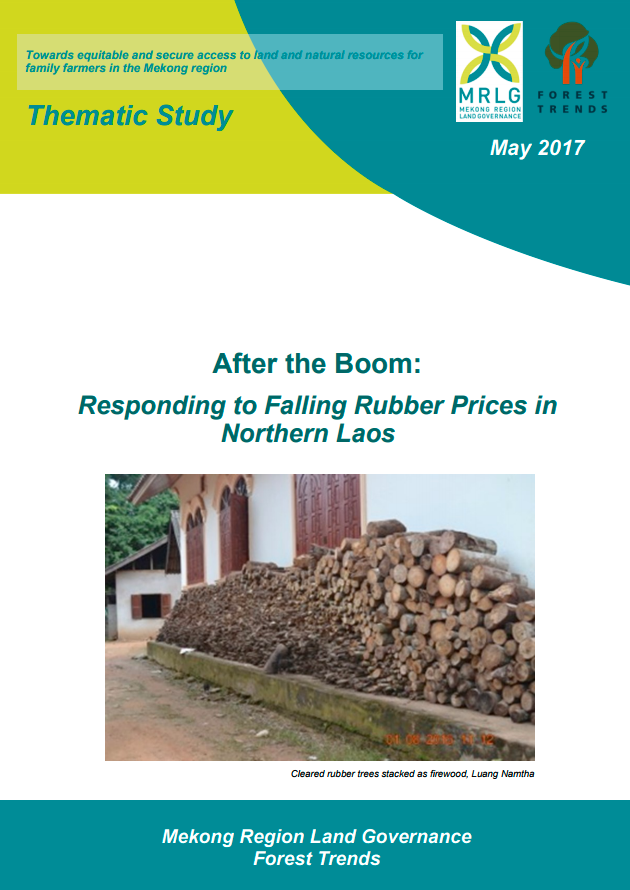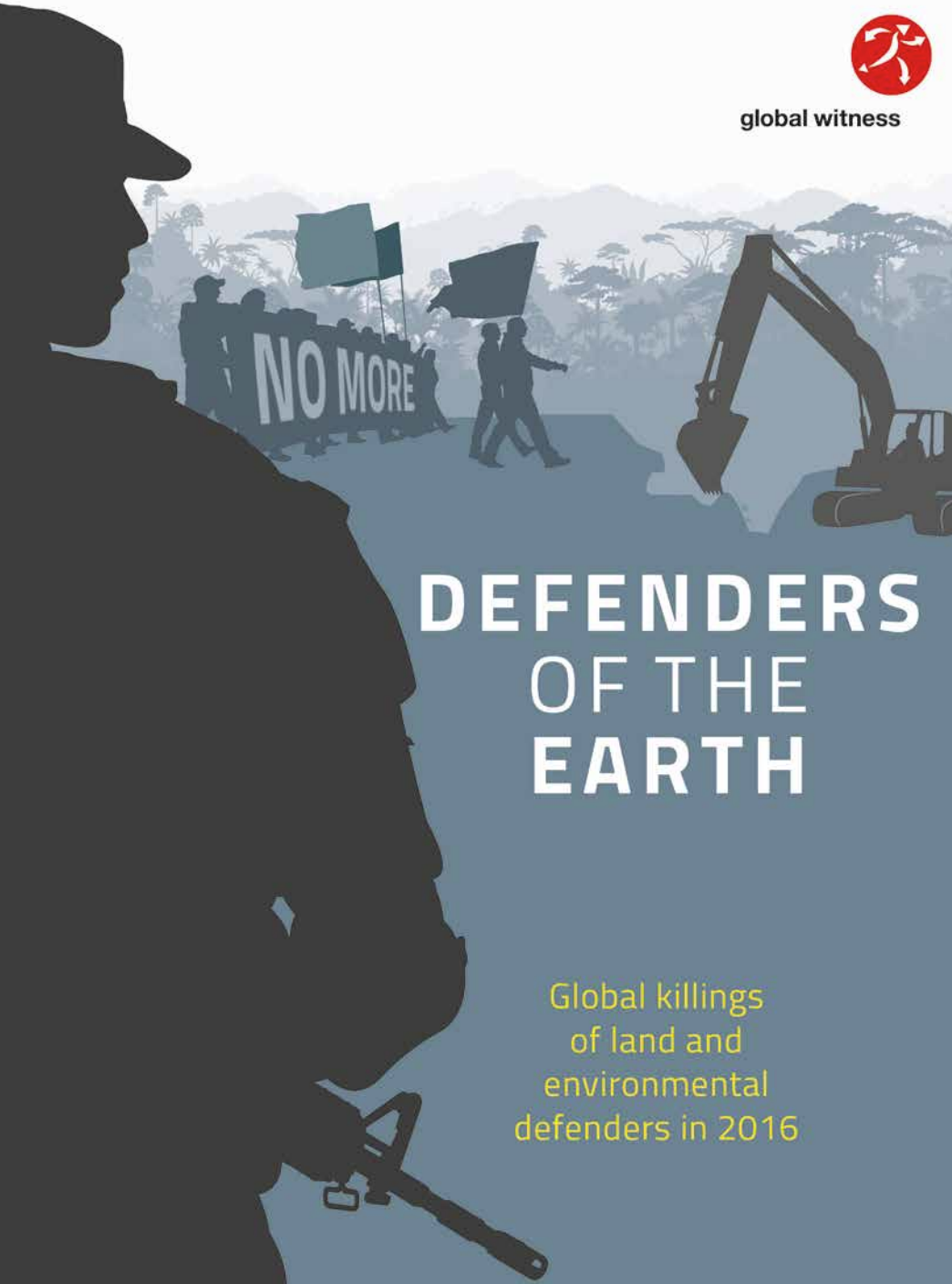The Impact of Large-Scale Mining on the Livelihoods of Adjacent Communities
This study assessed the contribution of Geita Gold Mine (GGM) to the livelihoods of local communities in Geita District. Specifically, it assessed the effectiveness of corporate social responsibility implementation, determined the extent to which GGM has contributed to socio-economic development in the study area, and examined the communities’ perceptions of environmental problems associated with mining activities and their impact on community well-being. A cross-sectional research design was employed, in which qualitative and quantitative methods of data collection were used.

